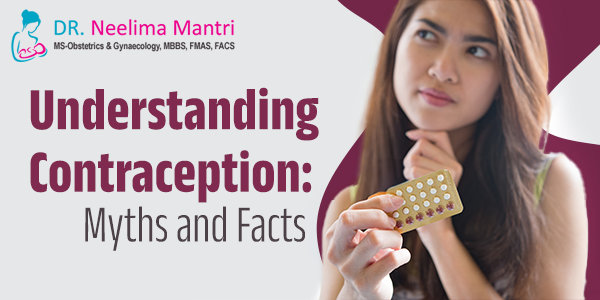Contraception is one of the most common health topics discussed during gynaecology visits. Still, it remains surrounded by confusion and half-truths. Some people avoid it due to fear. Others follow advice passed from friend to friend without medical checks. This makes it harder for women to make safe and informed choices.
Many patients search for the best female gynaecologist in Mumbai, not just for treatment but for clear answers about birth control. Good care begins with the correct information. That is why this topic deserves more attention than it usually gets.
What Are the Common Myths About Contraception
Some believe that pills must be avoided because they cause long-term harm. Others think that skipping periods through pills leads to serious illness. Many also think that using contraception early in life affects future pregnancy. These are all false. If you ask what the common myths about contraception are, the list is long but not impossible to clear. Most myths come from limited knowledge. A qualified doctor will explain each option and help remove doubts through medical facts and tests.
Common Misconceptions About Contraception
One major misconception is that all forms of contraception cause weight gain. While some pills may lead to mild changes in appetite, they do not lead to permanent or uncontrollable weight issues. Another is the idea that using any method for a long time will harm the uterus.
The truth is that most methods do not affect the uterus in a harmful way. Some women also believe that birth control leads to hormonal damage. This is not true. In fact, some methods help correct hormonal imbalance. These are all common misconceptions about contraception, and clearing them allows women to take control of their health without fear.
Can Contraception Affect Fertility in the Long Run
The short answer is no. Most modern contraceptive methods are designed to be fully reversible. When stopped, the body usually returns to its natural cycle within weeks or months. Some women may face a delay in conception after stopping, but this is due to age or other health issues and not because of the method itself.
A few rare side effects may appear, but they do not block pregnancy in the long term. If you ask, can contraception affect fertility in the long run, the answer is clear when given by a trusted medical expert. A complete health check can clear doubts and offer peace of mind.
Why You Need the Right Guidance
Contraception must match your body, your age, and your life plan. What works for one person may not work for another. Some women choose daily pills while others prefer monthly injections. Some choose long-term devices while others want temporary options.
The best gynecologist in Mumbai will guide you through this step-by-step. They will ask about your cycle, test your hormone levels, and explain the effects of each method. This kind of personal care helps women choose what feels safe and right for them.
Who to Speak With for the Right Advice
Gynaecologists see patients of all ages with different needs. Some are newly married. Some are recovering from delivery. Some are planning to delay parenthood. The best female gynaecologist in Mumbai will make time to answer each question with honesty and patience. They will not rush you. They will help you understand the whole picture and guide you through side effects if they appear. Choosing the right doctor means you feel supported at every stage.
Contraception does not have to be confusing. With the correct facts and honest advice, you can make choices that fit your body and your life without fear. If you are looking for a doctor who takes the time to explain and support you, speak with Dr Neelima Mantri. Known as the best gynecologist in Mumbai, she helps women clear doubts, break myths, and choose safe methods that work. Her care makes space for open questions and confident decisions, especially when it comes to common misconceptions about contraception and long-term health.



